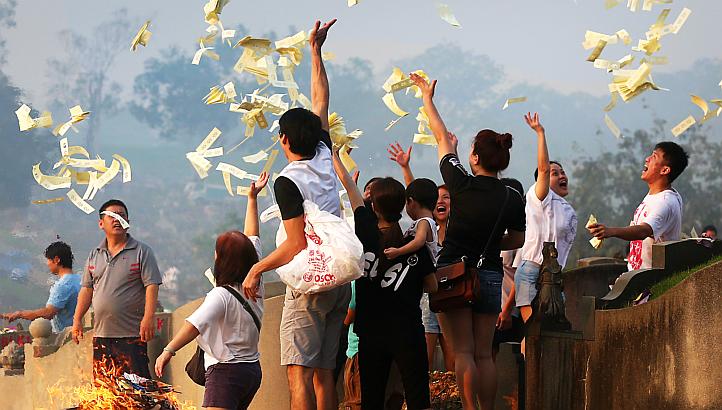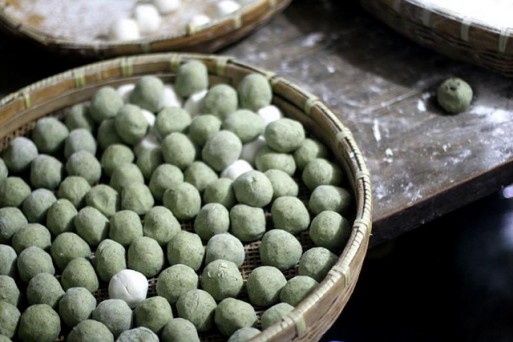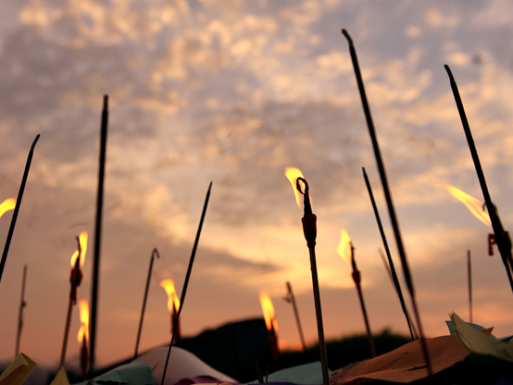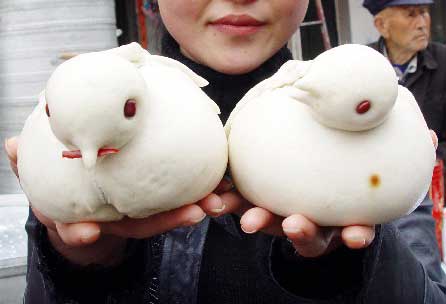Qingming, or Tomb Sweeping Day, occurs every spring in China. The sacred day has been a call to action for Chinese families since the Tang Dynasty, encouraging them to tend to their ancestors’ graves. Today, Qingming can be observed with a degree of flexibility and creativity – but that wasn’t always the case. When Emperor Ruizong was reigning in 684, families would go as far as human sacrifice to assuage their veneration anxieties. That’s not to say Qingming has lost its relevance – if anything, its contemporary presence has helped to preserve many of China’s rich traditions regarding death and the afterlife while educating a new generation in its roots.
Since 2008, April 5th has been the official date for Qingming’s public holiday. The ceremony could be described as an organized, humble event— beginning with the cleaning and pruning of an ancestor’s grave. After all, Qingming is a springtime event that offers time to reflect on life, death and regeneration of human lives. And with that comes the regeneration of weeds and brush. After a loved one’s grave is prim and trimmed, families will sweep it with a willow branch to ward off evil spirits.
Traditional meals like qingtuan (an appropriately green-hued bean dumpling) are often shared amongst families, who partake in the offering of tea, cigarettes, cakes and the burning of “joss paper,” a kind of currency made out of rice paper. The ‘money’ has long been burned as an offering to ancestors, but recently, families have begun burning paper models of cars, iPads and other earthly conveniences.
“The Chinese view of the afterlife has always been marked by qualities many Westerners would perceive as earthly,” explains National Geographic’s Peter Hessler, “In ancient times, the vision of the next world tended to be pragmatic, materialistic, even bureaucratic—values that are apparent in today’s archaeological discoveries.”
It wasn’t until the dawn of the Shang dynasty (1600-1045 B.C.) that the Chinese composed written accounts of how their people viewed the afterlife. The dead had immense influence over the everyday lives of those in ancient China – a belief that still hasn’t dwindled in their culture. The ancestors continued their lives in the afterlife much as they did in the living, with similar social structures and concerns—hence the need for a family member to drop off something as simple as a pack of cigarettes.
“The Chinese view of the afterlife has always been marked by qualities many Westerners would perceive as earthly.”
—Peter Hessler, National Geographic
David N. Keightley, a historian at the University of California, Berkeley, added that, “the more recently dead [ancestors] deal with the small things [while those who] have been dead longer deal with the bigger things…[it’s their] way to organize the world.”
“In the West, it’s all about rebirth, redemption, salvation,” says Keightly on death, the afterlife and Qingming, “In Chinese tradition[s], you die, but you remain what you are.”
You may like:
- Artwork from the Jin Dynasty shows life-after-life in 12th-century China
- Cliff Burials of Ancient China
- The Revival of Chinese Funeral Customs: Professional mourners revive Chinese funeral customs with lively, ritual-based performances

 Qingming: A Chinese Death Tradition
Qingming: A Chinese Death Tradition






 “Songbird” by Fleetwood Mac
“Songbird” by Fleetwood Mac
 First the Wealth Gap, Now the U.S. Has a Growing Health Gap
First the Wealth Gap, Now the U.S. Has a Growing Health Gap
 How to Comfort A Dying Loved One
How to Comfort A Dying Loved One














